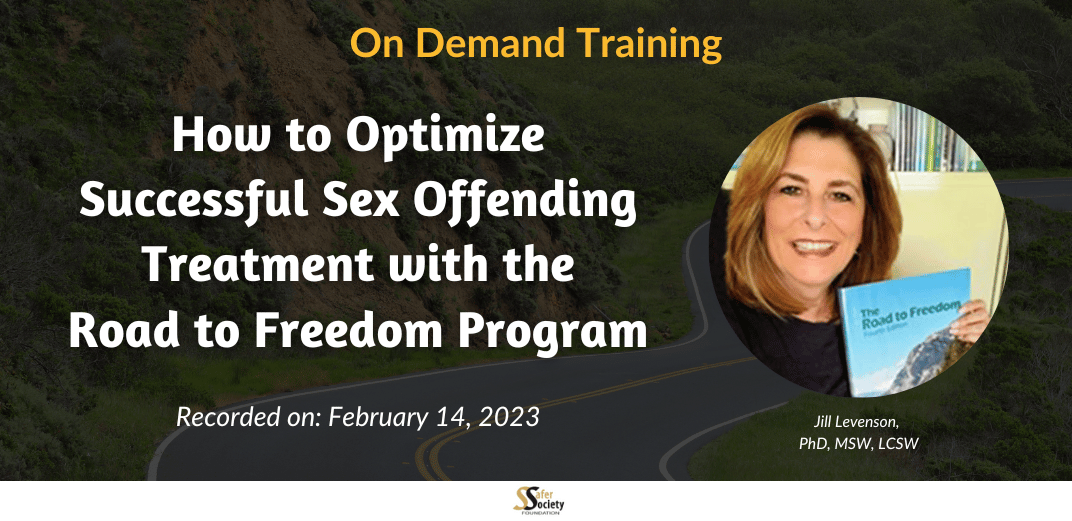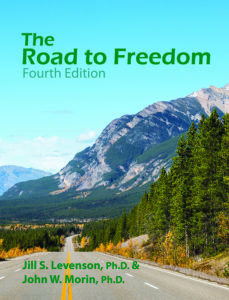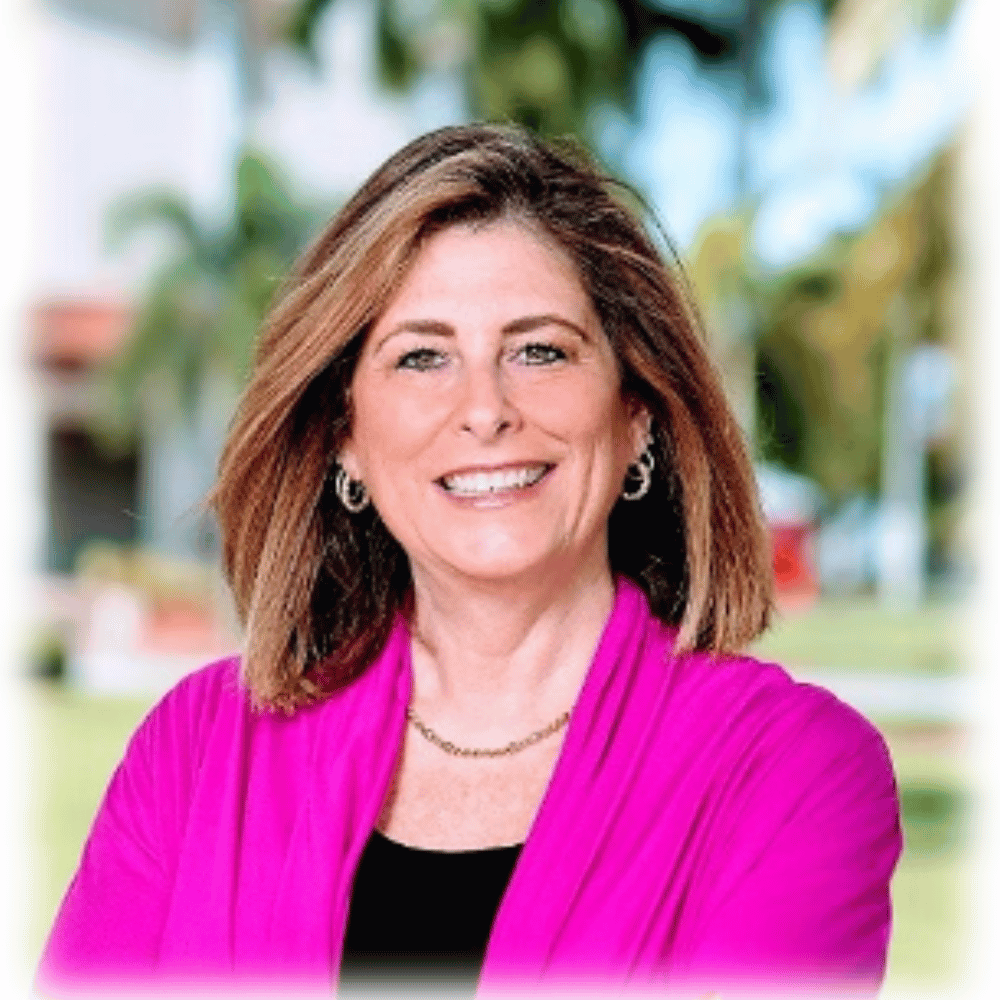
Online Training: How to Optimize Successful Sex Offending Treatment with the Road to Freedom Program
Already purchased an On Demand training?
Click here to access your Safer Society On-Demand Training Center account.
 This four-hour training explores implementing a program based on the 4th edition of the workbook, The Road to Freedom, for people who have committed sexual offenses.
This four-hour training explores implementing a program based on the 4th edition of the workbook, The Road to Freedom, for people who have committed sexual offenses.
The RTF4 program is strengths-based, client-centered, trauma-informed, and based on the principles of risk, need, and responsivity. The training focuses on using the workbook in treatments that aim to reduce dynamic risk. Dr. Levenson will further discuss the RTF4 sex offending treatment goals in the context of facilitating broader change in clients’ lives.
For instance, the training will provide information on:
- enabling client accountability,
- understanding the development of the problematic behavior,
- addressing problematic cognitive schemas about self and others,
- enhancing general, sexual, and emotional self-regulation skills,
- engaging in positive relationship-building and healthy communication skills, and improving the ability to be empathic and understand the perspectives of others.
The training provides a review of the RTF4 chapters and exercises and offers ideas for incorporating the workbook into group and individual therapy sessions. Participants will learn how to individualize the program in a client-centered way, and how to utilize workbook topics to facilitate engagement and progress in treatment. The workshop will allow ample time for discussion.
Topics to be covered include:
1) The Road to Freedom program structure
2) Suggestions for implementation
3) Client/case conceptualization of Risks, Needs, & Responsivity
4) Goals & exercises
5) Successful completion & graduation
6) Group facilitation skills
1) Utilize RTF4 in an interactive, individualized way to facilitate the completion of treatment goals.
2) Target & address individual client risks, needs, & strengths through the use of workbook exercises.
3) Adapt the structure of the RTF4 program to help clients progress at their own comfortable pace (responsivity).
4) Describe strategies for risk reduction through positive improvements in functioning related to accountability, self-regulation, empathy, relational patterns, and cognitive schema.
5) Strengthen group facilitation skills using a strengths-based approach in the context of risk-needs-responsivity principles of correctional rehabilitation.
Audience
This training is for professionals working with people who have experienced complex trauma as well as people who have perpetrated abuse. Professionals who will benefit from this training include social workers, psychologists, clinical counselors, and interested paraprofessionals.
Content Level
Who's Presenting

Jill S. Levenson, Ph.D., LCSW
Dr. Jill Levenson, PhD, LCSW, is a renowned expert in Trauma-informed Care and a Professor at Barry University in Miami. She is a certified TIC instructor, specializing in applying TIC in various settings. Dr. Levenson’s extensive work includes over 120 articles, 25 chapters, and 6 books. Her research has been funded by prestigious organizations like NIJ, NSVRC, and CDC. Recognized for her contributions, she has received awards such as the Social Worker of the Year Award from NASW-FL and a Lifetime Achievement Award from ATSA. Dr. Levenson is also a member of the American Academy of Social Work and Social Welfare. She has conducted trainings globally and advocates for social justice and trauma-informed care.
